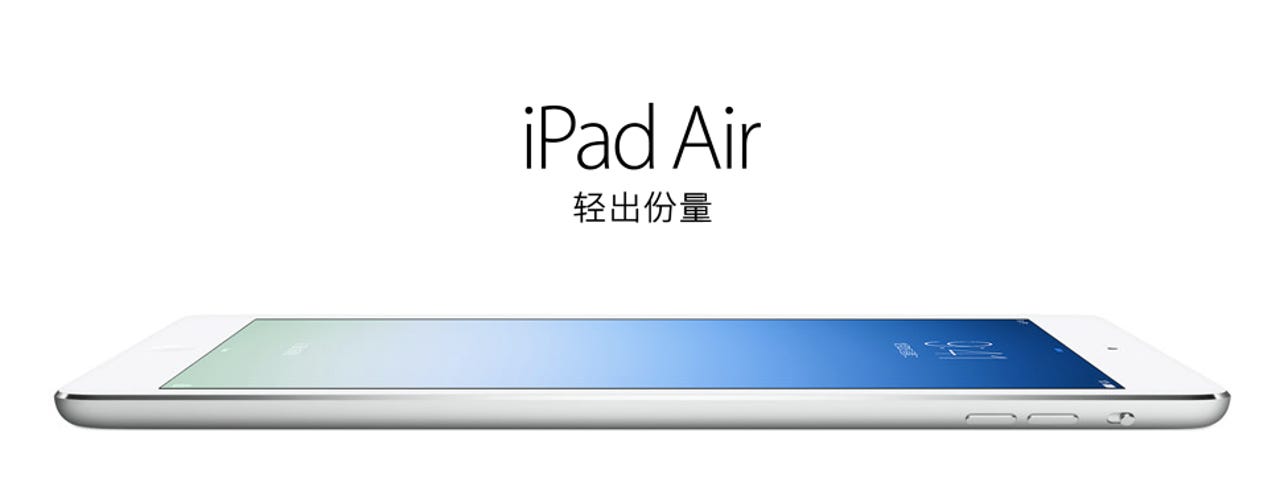What Apple's iPad launch strategy in China really means


Like many other multinational companies, Apple knows that its best growth prospects are locked up in the Chinese market, second only to the U.S. in terms of gross domestic product but closing the gap with alarming speed. (Indeed, China is Apple's second-largest market in terms of overall sales.)
The Cupertino, Calif.-based company's overtures, then, have been enthusiastic and multiplying in recent years.
In March 2012, Tim Cook visited the country for the first time as chief executive, with arms and ears wide open. "China is very important to us and we look forward to even greater investment and growth here," spokeswoman Carolyn Wu said at the time, referencing Cook's visit.
In April 2013, Cook personally apologized to Apple's Chinese customers after state-run press outlets lambasted the company for poor communication about its warranty policy. Though it wasn't his first apology as chief executive—that came in September 2012, after the company rolled out a less-than-stellar Maps application—it was the first such note directed at a specific market, underscoring its importance.
And Apple's appointment this month of Burberry chief executive Angela Ahrendts to run its retail division is a nod less toward her use of iPads in the British outfitter's brick-and-mortar stores and more to her ability to clarify and package a brand for sale in emerging markets. "China is just the natural next extension of purchasing back the Burberry brand and integrating it so that we have one, pure global brand strategy worldwide," she said in the wake of the company's acquisition of its stores there. Apple and its nine Chinese locations are no different.
(If that's not enough, Cook was revealed this week to have joined the advisory board of Tsinghua University School of Economics and Management in Beijing.)
So it comes as no surprise today that Apple has graduated China to the "first wave" of countries for the launch of its all-new iPad Air. It's the first time that China gets a new iPad model at the same time as more mature markets such as the U.S. and U.K., and demonstrates how much of a priority this country has become.
That it is the iPad in particular is significant. Though Apple currently leads the tablet market in China, its share of that market is shrinking, mirroring the trend that the company saw with its iPhone in the more mature smartphone market. (Its most formidable competitor? Samsung, the same company that led the Google Android-based assault against Apple's iPhone.) The new iPad Air model is clearly intended to renew worldwide excitement for Apple's larger tablet computer, but its earlier availability in China demonstrates that the company is finally seeing dividends from wooing officials in the country, which have been the source of delays in the past.
"I personally very much hope that China will become part of Apple's first wave of launch countries," Cook (translated, then paraphrased) told the local news outlet Sina in January, "but our products in the Chinese market need to obtain prior approval [by regulators]. China hopes to shorten, as much as possible, the time to market. It has also become one my priorities."
There's a lot of money on the table. Though the overall computing market in China has slowed in response to greater macroeconomic trends, the tablet is outpacing that rate by steadily replacing the traditional PC. For a country that is estimated to account for more than one quarter of the entire global tablet market, then, it behooves Cook and company to firm up operations and compete more aggressively.
Related on ZDNet: